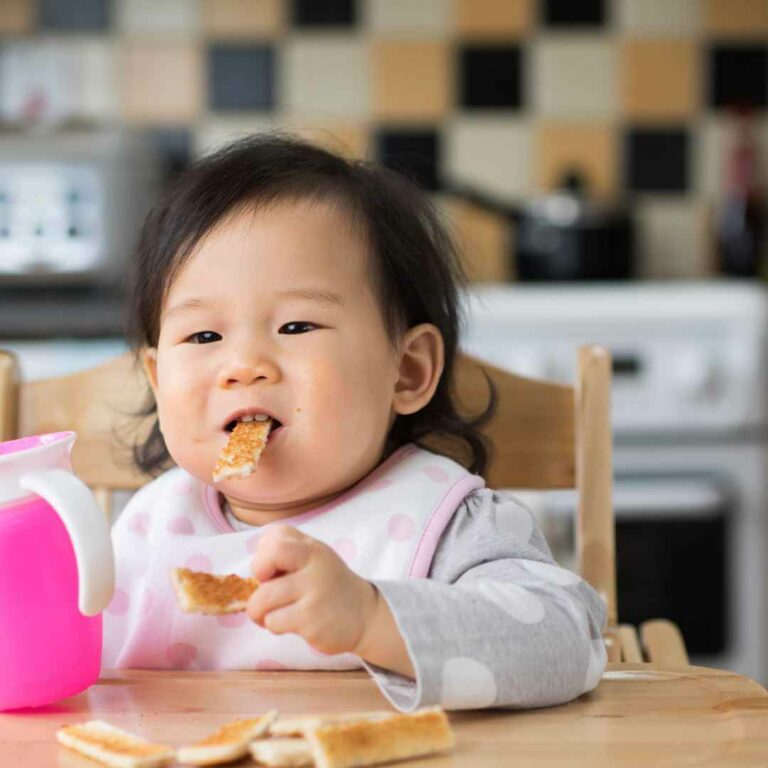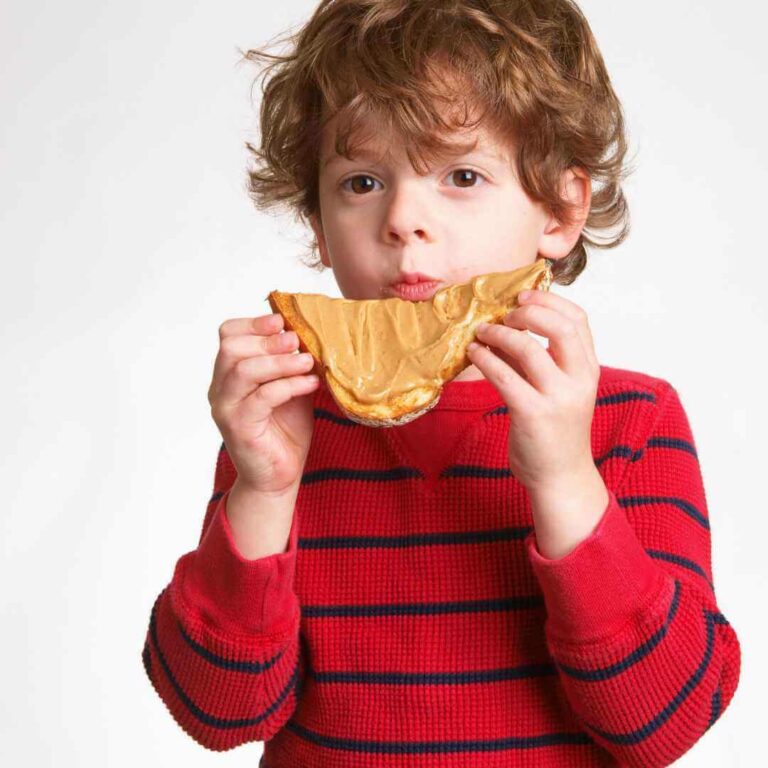Childhood Allergy – ABC Radio

A short while ago I was fortunate enough to be interviewed by Andrea Gibbs ABC radio. We talked everything childhood allergy and you will find our exact interview below! You can read, watch the video or listen to the podcast.
The common allergy questions…
Andrea:
We all make choices as adults in terms of what we like to eat or what we can eat. But how do you think you’d fit living with allergies as a small child, you be relying on some pretty awesome parents to keep you safe and out of harm’s way. In Australia, food allergy occurs in one in 20 children and thereabout two in 100 adults who suffer from food allergies as well.
Things that are simple for other parents, playgrounds parties, barbecues, restaurants, they all have the potential to be life-threatening. Everyday events for most people are not every day events for families living with food allergy
Australia is ranked number one in the world for allergies, a food allergy research report shows a treatment for anaphylaxis rose over 400% in the last 10 years. Why is that? No one knows, but science is trying to find out. And today I’m joined by Paediatric nurse, Heidi Young, from The Nest, Kids CPR & Allergy. To help you understand a little bit more about allergies, Heidi, it feels like every kid has allergies these days. Is that correct? To assume it’s more common than it used to be?
Heidi:
Yeah, it’s definitely more common. And without a doubt, we now know that 1 in 10 under one year olds is diagnosed with a food allergy and many of them have that right up until school, age and beyond. so when the older generation say “there was no such thing as allergies in my day”, well actually back 30 or 40 years ago, there was probably only one child in the school that had a food allergy, but now we know it’s much more prevalent.
Andrea:
Why do we have more allergies in 2024 and 1991?
Heidi:
Well, that’s the million dollar question.
We don’t actually know a definitive answer to that, but there’s some pretty good studies out there that show children that are not born in their parents’ country of origin, have a much higher rate of food allergy than if they were born in their parents’ country of origin.
They’ve researched it with Asian families. If a child is born in the country that the parents are born in Asia, then they’re much less likely to develop food allergy than if that child is born to Asian parents in Australia.

Australia has the highest rate of food allergies in the world, but it’s also extremely multicultural. So that maybe points to why there’s such a high rate here, but we also think that it could be environmental. We live in a very different world now. The last couple of decades, environmentally, it’s a completely different planet. So that has to play a part towards those rates. We think.
What is childhood allergy?
Andrea:
Can you explain what an allergy is?
Heidi:
Allergy is when your immune system senses a substance that is normally harmless in the environment. For instance, food, pollens, pet dander, dustmite.
So what happens is that we are exposed to an allergen, the body produces something called IgE antibodies and they sit on the cells in our body. If we are not exposed to that substance again, the IgE will just sit there dormant. However if or when we’re exposed to that substance again, those little antibodies make your cells release histamine, which is the itchy stuff that causes the allergic reaction. Including anaphylaxis symptoms like, lower blood pressure, breathing problems and swelling of the tongue.
So in summary, allergy is an immune system response to something that should be harmless.
Is childhood allergy hereditary?
Andrea:
And can you inherit an allergy? if my mum was allergic to something, would that mean that I would be too?
Heidi:
You can do, there is an increased risk of developing allergy, but equally they may not. So it’s not a given. The stats are roughly around about 40% that if you have allergies or if there is a sibling with allergies and then another baby comes along, that they could also develop allergies, but it doesn’t necessarily mean they would be the same allergies.
What is childhood allergy desensitisation
Andrea:
And how are they treated? Do some people become desensitised to it?
Heidi:
With food allergy, you have to wait for your immune system to be ready to allow that food in without causing an allergic reaction. So there are places that will do oral immunotherapy to foods, but it’s not regulated in Australia yet. So if anyone’s thinking of undertaking oral immunotherapy to a food, then definitely do your research because it’s not actually regulated in this country yet. It is available in the U S but what the U S don’t talk about is the high rates of anaphylaxis when they’re doing that kind of thing.
With pollens, dustmite , dog, cat and horse dander, you can actually have immunotherapy through injection or drops in the mouth or little wafers under the tongue for dust mite allergy.
We also do food challenges. And that’s when you’ve got a child with food allergy and they see the specialist every year or every six months and the skin prick tests and the history tells us that that child is actually growing out of their allergies. So then we may choose to do a food challenge, and that shows us if the allergies still exists.
Andrea:
There’s been some interesting new research, about a protein that can potentially stop allergic reactions. Can, can you share a little bit about that?
Heidi:
They have found a protein that will prevent the excess formation of the IgE that I talked about. It forms when a child is sensitised to a food and it sits on the cells. When they’re re-exposed to that food, so they eat it, for instance, the IgE tells the cells to release the histamine, but it looks like this new protein stops there being so much production of that IgE in the first place, therefore the release of histamine wouldn’t be so much and the reaction would be less severe. It’s pretty exciting.
Andrea:
Yeah. Very exciting. Many young parents are mentioning that there is an epipen shortage. Every time they fill their scripts. Do we know if anyone is working on a solution for this?
Heidi:
Epipen have the market in Australia, and they have done for a really long time. There’s always been shortages. Maybe that is a reflection of the increased rate of food allergy that they can’t make enough. Unfortunately they expire every year, so people need to buy them all the time. And also because people are getting so scared about allergies, they ask “should I just buy an Epipen in case my child has a reaction when I’m introducing food?” I always tell them, please don’t, because there are so many families that really need them that can’t always access them.
Allergy vs Intolerance
Andrea:
Because of the increase in allergies that we’ve seen over the last 10 years, is one of the most challenging things in terms of dealing with older generations who may not have been exposed to people with these kinds of allergies. So they not take it seriously enough?

Heidi:
Yeah. This is the trouble. I think a lot of the time, it may be that they’re just not taking it seriously enough, but it’s also a case of you just don’t know what you don’t know.
If people aren’t living with it. they’re not highly sensitive to it.
I don’t live with it, but I have spent six years working really closely with families of food allergy. And I, I’ve only got a glimpse of really how it must be, you know, in a playground with a child walking around with a peanut butter sandwich. That peanut could be everywhere and this reaction could be life-threatening. So you can only imagine what it must be like.
I’ve had so many parents say to me that COVID lockdown was such a relief because it gave them an excuse to just not have to go out and about, not have to go to parties or have to go to gatherings, especially with other family members that just didn’t understand. Every time you order from a restaurant or your mother-in-law makes something to eat, you basically feel like you’re blind, you don’t know what’s in it, and it can be really difficult.
But the other issue is that people get intolerance and allergy mixed up and they think that if they just give their child something, the worst that will happen is that they have an upset tummy, but an intolerance, it’s something completely different. It’s the digestive system, and it’s not life-threatening the allergy is very much life-threatening and it’s triggered by the immune system.
Andrea:
What would you like the public to know about allergies? Is it just really a matter of being really honest and just asking, being upfront?
Heidi:
Now we’ve got 1 in 10 under one year olds diagnosed with a food allergy. The chances are somebody in your mothers group, or somebody in your circle is going to have a child with food allergies. So just ask, be up front, be, and don’t leave children out of parties that have food allergies, collaborate with their parents, ask them if they want to stay. Don’t make these parents feel like there’s something wrong with their child. Increase awareness. If your child is three or over, children can be really savvy with knowing what they’re allergic to. And you know, when they’re offered food, they can say “Does this have egg in it? Does this have milk in it?”

The main thing I would want to say to parents is that we now know that if you don’t have a child with food allergy, that introduction of the common allergy foods under the age of one, is how we can drive down the rate of childhood food allergy.
It’s almost like we are not allowing the immune system to be surprised, because we get the food in there early. So there is a really big push for this right now. There’s so much evidence out there to say that we actually need to get these foods in between the age of four to six months, and up to 12 months, we need to get the top nine allergies in the diet. And that will be the best thing you can do to help reduce the risk of your child developing allergies. Even if they have a family history of eczema or asthma, we need to be doing that for sure.
We hope this has been helpful for you today.
Want more? We’ve got you covered…
Our Baby First Aid Courses
Our baby first aid courses are available in person in your home and online. We run classes in your home with groups of 2, 4 or up to 10 in Sydney & Melbourne and you can book in 3 easy steps!
- Pick your class
- Follow the prompts to purchase
- We will contact you within 24 hours to lock in your date of choice
Our First Aid Certificate Courses
We run most of the popular first aid courses Australia wide. HLTAID011 Provide First Aid, HLTAID009 Provide CPR, HLTAID012 Provide First Aid in an Education & Care Setting, RAMOAP (anaphylaxis), Mental Health first aid and CPR/LVR to name a few.
Book your public spot online or contact us if you have a group of 5+ people for onsite training.
Here are some other resources you may enjoy!
FREE GUIDE: Your Virtual Baby First Aid Kit
FREE GUIDE: Introducing Common Allergy Foods & Allergic Reactions
FREE Workplace Emergency Preparedness Plan: Grab this at the bottom of every page!
Follow for baby & child first aid and allergy info and tips on Instagram, TikTok & Facebook all @thenestcpr
